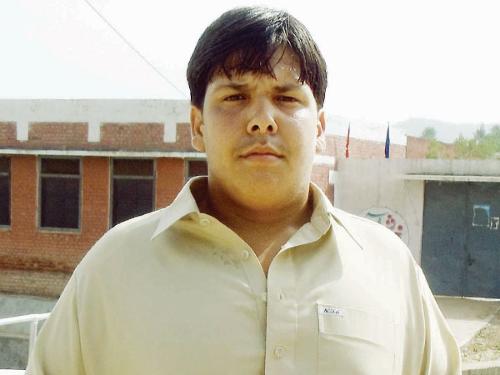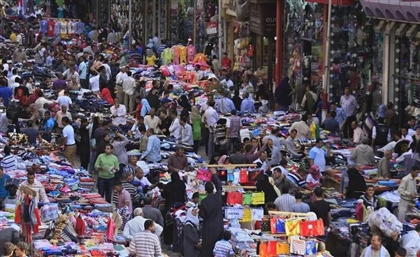The Most Dangerous Game
News of the bravery of the recently martyred Aitzaz Hassan - a 15-year old Pakistani boy who saved his classmates by tackling a suicide bomber to the ground - has Anam Sufi wondering why such incidences have become normalised.

We take our education for granted, and we have ceased to consider the fact that we can read the pixels on this computer screen as anything other then normalcy. Perhaps this is owed to the white picket fences that shelter our ignorance from the harsh realities faced by others our age, or even younger.
As a Pakistani, born in the States, and having lived her life as a new-age nomad of sorts, I have always found myself straddling the divide of dichotomy. Conservatism vs. liberalism, West vs. East, Culture vs. Choice, Community vs. Individuality, and while I have often struggled to make peace with this constant macabre of uncertainty, I must admit its salient role in allowing me to maintain an ebb of shifting and dynamic perspectives. I sound like I’ve sat atop the peak of a moral high ground, adorned with the finest cloaks of arrogance and pretentiousness, but I assure you, there is no arrogance to be had when confronting the fact that we, mankind, have failed miserably. And while there is glory in admitting defeat, the greatest disappointment of our species is in realising that despite our recognition of failure, we are simply unmoved to counter it.
One of the first short stories that struck me as a child was The Most Dangerous Game by Richard Connel. It tells the story of a man who finds himself stranded on a Caribbean island after a shipwreck. There he meets a Cossack aristocrat who initiates a sport that follows the principle of “hunt or be hunted,” where the Cossack and the shipwrecked man assume the role of the game and the hunter. Without delving too deep into the story, the underlying premise stresses on man being the most dangerous and ruthless of creatures. As I walked out of my 8th grade English class and into the real world, the meaning of Connel’s story began to present itself in every news headline, street corner, and even in the sparkling sways of evening wear.
The most recent of such reminders came with the news of a 15-year-old boy, Aitzaz Hassan, who stopped a suicide bomber from setting off an explosion at a school in North West Pakistan. While his friends ran for shelter, Hassan courageously intercepted the bomber and foiled his attempts to claim the lives of hundreds of his classmates. Unfortunately, Hassan had to pay a fatal price. The district of Hangu, where the tragedy took place, has a dense population of Shi’aa Muslims, a targeted minority within Pakistan. Notably, the district shares a close proximity with neighboring Afghanistan, a region still plagued by internal and external conflict; a conflict that began and continues to burn on the coals of Western political agendas.
For all our academic achievements, certificates of higher education, cocked brows, and inflated egos, it baffles me to see that mankind (generally speaking, of course) is still content playing blind man’s bluff. After all, who are we kidding, if not ourselves? A literature major, it’s almost second nature for me to tap into fiction to cite examples that may support any opinions I choose to garner. But this next one is carefully chosen, simply because not only does it exhibit relevancy, but it is trendy, and therefore its significance redoubled.
The Hunger Games, a trilogy by Suzanne Collins that has recently been turned into a film starring the oh-so-lovely Jennifer Lawrence, has gained much popularity amidst fans. We feel for Katniss and the citizens who live in perilous conditions within the districts, our eyes ogle at the absurd opulence displayed by those in the Capitol, and we mentally click our tongues at such stupidity. I hate to break it to the audience, but the joke’s on you. It’s not rocket science to recognise The Hunger Games as a satirical work, one that strives to draw attention to the reality that the affluence of the rich is largely dependent on the despondency of the poor.
How is this relevant to Aitzaz Hassan? Well, he may not be as glamourous as Katniss Everdeen, but he is her and she is him. Men –no, boys – like Aitzaz Hassan are the real life heroes that inspire the heroic characters we idolise in fiction.
The sectarian violence that runs rampant in Pakistan has its origins in the Soviet-American proxy wars fought during the Cold War period. Refugee camps in Pakistan served as the breeding grounds for the Mujahideen, the same forces that assumed power in Afghanistan at the close of the Soviet-Afghan war. These forces were offered pecuniary aid from Western powers that needed them as pawns in their quest for capitalist domination; however, it’s no secret that much like Dr. Frankenstein, the US was responsible for creating its own adversary.
Today the US claims to fight a “war on terror,” using the tag-line to mobilise domestic support. Accordingly, it is no surprise that the two most popularised names to have emerged from Pakistan over the last few years have been Malala Youssefzai and now, Aitzaz Hassan; both victims of terrorism at the hands of extreme Islamists. You see, when international, mainly Western, news channels shed light on the horrific threats of fatal violence that face children like Malala and Aitzaz, the use of American controlled drones in Pakistan becomes justified. I am not here to provide some kind of sweeping declaration as to whether or not bombing Northern Pakistan and the Taliban into submission will or won’t lead to a filtering of terrorism, however, I am highlighting the fact that us, we, mankind, have either helped create or willingly succumbed to a system where self-preservation trumps all else. Everything, even humanitarianism, is politicised.
But the irony of life, if I may, is when people like Aitzaz Hassan and Malala Yousefzai are used in such playground politics. After all, in a world where it seems everyone is looking only to further their own interests, there suddenly emerges someone like them.
I look at my Facebook newsfeed and see people obsessing over characters like Peter Pan, and I can’t help but laugh a little. Aitzaz Hassan will forever be 15, and that is what it means to never grow up. I want to pull my hair out at such times and cry at the top of my voice: do not take your time for granted, and be grateful that you can grow up: Make it count in a way that cuts across inherent desires to pursue hedonism.
Let Aitzaz Hassan be a beacon to remind us that heroes don’t have to wear capes and project logos into the moon. Similarly, villains needn’t be green, or come with super powers. The world is wrought with characters both selfish and selfless, the latter being a dying breed. Accordingly, what good is a martyr if his sacrifice is not appeased by the promise of having affected change?
I was nestled in a fur throw, seated by the fireplace, having accidentally flipped to a news channel when I heard the news of Aitzaz Hassan. It came third in a spate of readings spoken out loud by an anchor who seemed better suited to be sat at a game of poker. When it was over, I thought, ‘haraam’, and I went out with friends to have dinner. Where were you when the news hit, and what did you do afterwards?
Normalcy: We are responsible for what it means.
- Previous Article I Got Banged!
- Next Article Nomades Land
























